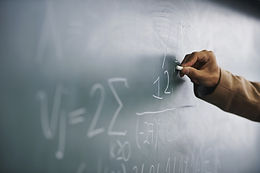Teaching Philosophy




First and foremost, I believe that we, as educators, are tasked with helping our students develop into productive members of society and well-rounded individuals after they leave our classroom. Students should walk away from their time in the education system with a toolset of skills they can apply to situations they encounter in their professional and personal lives in order to succeed. Each and every lesson, regardless of context and content, should have a link to the real world or an application beyond the four walls of our classroom.
When I first began teaching, I was incredibly disappointed that I was assigned, by Teach for America, to teach chemistry. I don’t actually enjoy chemistry—it was one of my least favorite subjects in college and when I was in high school myself. I was so disappointed that I almost dropped out of the corps. However, looking back, I am thankful that I was assigned a content that I did not personally enjoy. I have found that many people share the issue I originally had with chemistry—for the majority of people, chemistry is something you learn about in class that cannot be applied to life outside of school. Having this dislike made me especially conscious of every move I made in my classroom. How would I make my class authentic and meaningful for my students in a way that I did not personally experience? I answered this question by incorporating relevant and culturally responsive unit themes, student interests, Habits of Mind, and growth mindset to develop my students inside and outside of my classroom. This shaped my entire approach to being an educator and, while I no longer teach chemistry, this is a mentality and teaching style I have carried with me to my current position.
Teaching in South Central Los Angeles and now in a suburb of Jakarta, Indonesia, I have never shared an ethnic or cultural background with my students. I am aware that the way my culture operates is not necessarily the best way. As an American living in a developing nation, this is especially important to remember. I have worked to be a culturally responsive educator that empowers my students to self-advocate for what they need to be successful.
Each student is an individual that brings their own valuable background, culture, knowledge and set of life experiences to the classroom. Leveraging these aspects of a student has the power to enrich the learning environment for all. However, we cannot utilize these aspects of a student effectively if we do not take the time to get to know our students as individuals. I make every effort to get to know each of my students and to make sure they feel seen and valued in my classroom.
A small technique I implemented during spring of my first year in the classroom has developed into a cornerstone of my teaching philosophy. I am an avid reader. I currently have the goal to read 52 books during 2018. I began to keep the book I was currently reading on my desk. Students began to notice and ask questions. This small move eventually led to me sharing my personal love of learning with my classes. This has caused some of my most insightful conversations with students. Some of my happiest memories from teaching have been when a student started reading a book because it was on my desk and we had a conversation about it. This showed me that every small move we make could have a ripple effect on our classrooms. I have been conscious of this in every aspect of my teaching.
Personally, I do not enjoy delivering direct instruction. Also, research also shows that this is one of the least effective ways of teaching For this reason, my classroom has a high level of focus placed on collaborative grouping structures and activities. I hardly every deliver more than 5-10 minutes of direct instruction at one time. When I made this change, I noticed increased levels of engagement and improved academic performance across the board.
Furthermore, I approach every day and every lesson with enthusiasm. When a student can tell a teacher loves what they are doing, the student is more likely to mirror this excitement. I try to incorporate all aspects of The Joy Factor into my lessons to make the learning experience as fun as possible.
Finally, I think it is important to keep in mind that we are always still developing as educators. Each new class and new set of students is different and they should be viewed as such. As adults, we are still growing and should constantly be seeking ways to develop and improve. Through academic research and first hand lessons taught to me by students in the classroom, I am an entirely different educator then I was when I first stepped into my classroom years ago. I hope to continue this development moving forward.